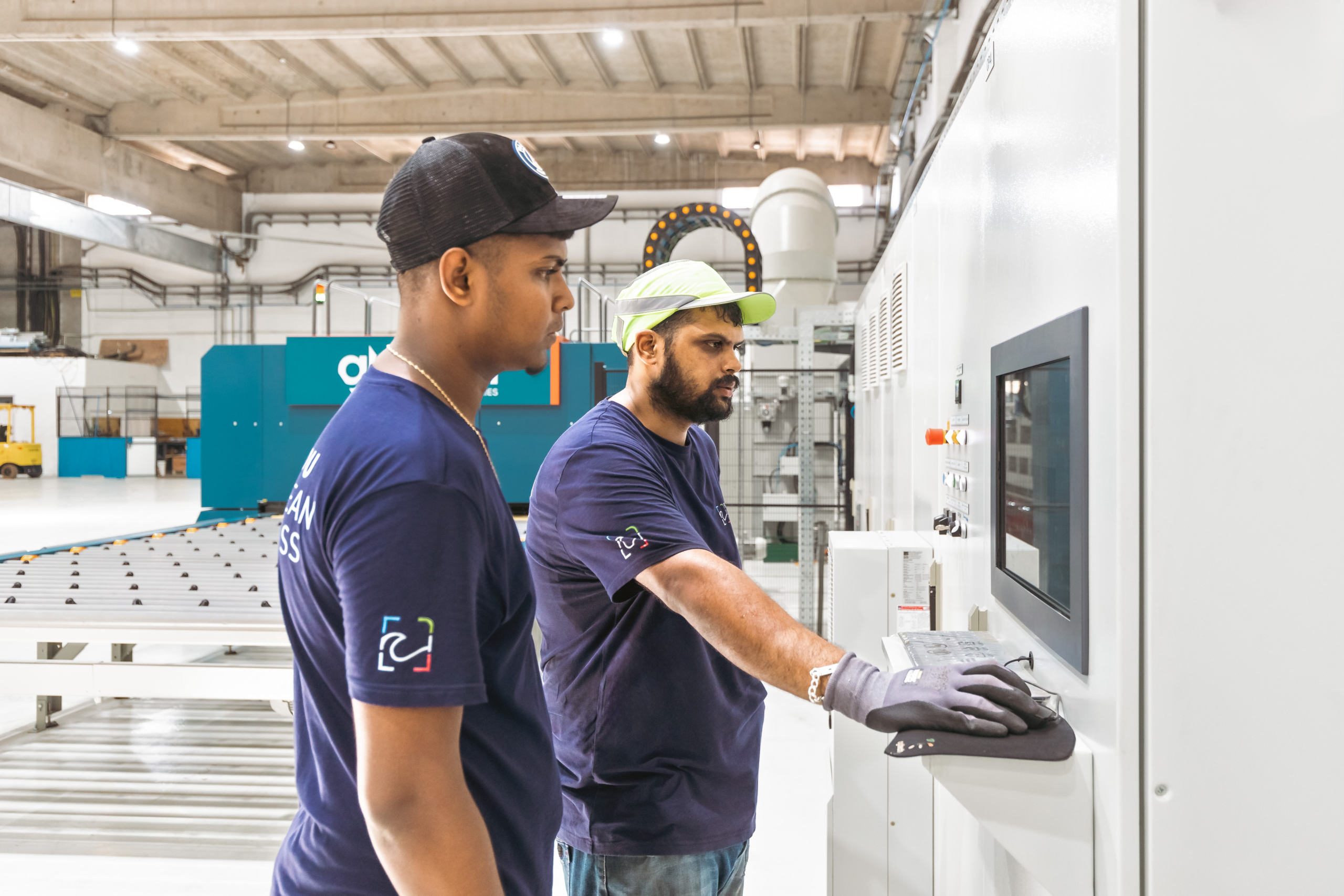
Circular economy in our glass industry creates employment opportunities in eco-design and material valorization field. These jobs contribute to stimulating the local economy while supporting our sustainability goals for our products.
RIOU OCEAN GLASS aims to initiate a local and responsible industry in Mauritius around its industrial challenges on the scale of the Indian Ocean.
Our glass industry has a key role to play in fostering the development of a circular economy sector in the region.
RIOU OCEAN GLASS accordingly mobilizes its internal engineering and the research and development teams of its partners to enable the development of such a sector in Mauritius.
From eco-design to addressing end-of-life product management challenges, our teams are seeking to develop a network of stakeholders to make the Mauritian glass industry a responsible and excellent sector in addressing climate challenges.
Glass is a durable material that can be reused multiple times. “It is through eco-design and glass recycling that our company will be able to reduce the extraction of new raw materials, such as sand. Preserving natural resources and reducing the environmental footprint of our activities are among the objectives we have set for ourselves.”– Pierre RIOU, the founder and president of RIOU OCEAN GLASS.
In addition to managing the life cycle and sustainability of our products, RIOU OCEAN GLASS is also committed to a continuous improvement approach regarding water and energy savings within its industrial processes.
“Excellence lies in our ability to provide the best experience to our customers, notably by surprising them with our agility, innovation capacity, and responsible commitment to the Mauritian territory, particularly by developing our various activities in a virtuous manner.” – Emmanuel THIEBLIN, CEO of RIOU OCEAN GLASS.
The Mauritius factory is notably equipped with a wastewater recycling process. The successful implementation of water recycling in our industrial processes requires careful planning, appropriate technologies, and continuous commitment to managing the impact of our activities.
Water recycling in industrial processes remains a major practice for reducing freshwater consumption, minimizing waste, and thus preserving natural resources. The wastewater at our industrial site undergoes specific treatment to remove various contaminants. Recycled water can then be reintroduced into industrial processes for various purposes, such as cooling, cleaning, or even in the manufacturing process of new glass products.
“I take this opportunity to announce that we are open to discussions on collaborative and virtuous partnership projects that give meaning to our existence in the territory.” – Emmanuel THIEBLIN.
